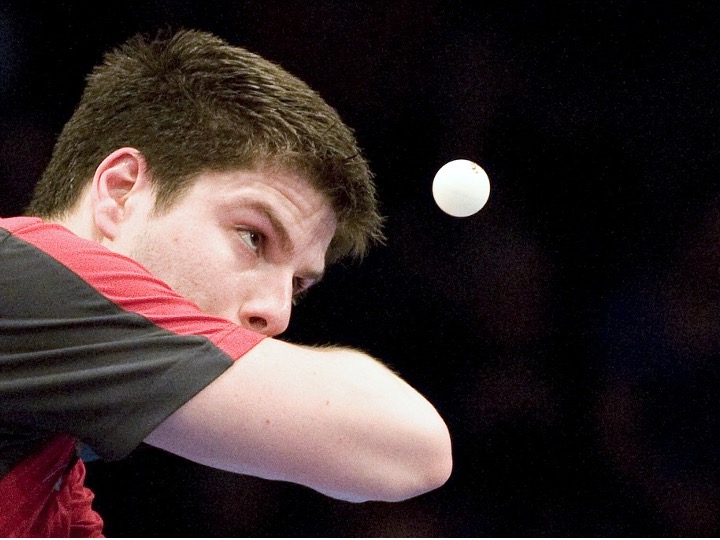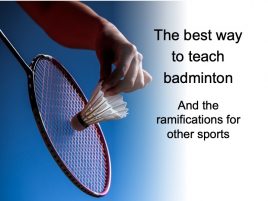
How to Get the Bonus of Off-Line Learning in Table Tennis and Other Sports
We’ve all experienced it.
You’ve got a thundering and relentless forehand when you’re practising. But when you’re playing a real game, it disappears.
But what’s this? It comes back when you’re practising again.
What’s going on? And what can you do about it?
Deliberative versus Non-Deliberative Practice
A little understood fact is how well you perform in practice is not a good guide to how much you’ve learnt. Nor is it a good guide to how well you’ll play in the future. What you see is not what you get.
If you practice using what’s called ‘deliberative practice’ you’ll get a continuous flurry of activity in your premotor cortex, parietal lobe and occipital lobe. And this is a good thing. It’s how memories are built and practice is all about building memories. It’s how you get to be a better player.
If you practice using ‘non-deliberative practice’ – which is very common – the activity in your premotor-parietal-occipital network drops off. You won’t know this of course. Your subconscious doesn’t readily let you into what it’s up to.
However, this drop off in activity will not cause your blistering forehand to fade – while your practising that is. You’ll be none the wiser. You’ll blithely keep hitting away happy with your forehand’s rock-solid reliability.
When Brain Activity Takes a Holiday
So why is this brain activity important? Well, it’s this. The premotor-parietal-occipital network assesses the situation in front of you – such as your opponent’s incoming shot to your forehand. It then plans and organizes your response.
In addition, the occipital cortex is the hub of visual processing. And a place where your visual memories are stored and compared. And this is why the two types of practice get such different results.
If you practise using non-deliberative practice, your premotor-parietal-occipital network will take a holiday. It will no longer assess, plan and organize. And most importantly, it will no longer store visual memories in your occipital cortex.
No longer will you be collecting vital clues from your opponent’s windup. Nor will you be collecting memories of the trajectory of your opponent’s incoming ball. All of which give you early warning of where your opponent’s ball is going. And these are the very memories you need in actual competition.
Collecting the Right Memories
Practice is the memories you collect for later use when you need them. If you’re not collecting the right memories you’re effectively not practising. So when you use non-deliberative practice, you might be beautifully blasting that forehand of yours but you’re not collecting new memories.
So when you get into competition you don’t have the memories you need to deal with the diversity of shots your opponent will throw at you. And this is when you’ve been deceived. You thought you were learning plenty but you weren’t.
The Bonus of Off-Line Learning and Learning Transfer
Knowing how your mind works is important. It can help you be a better player. There are real world benefits that flow from keeping your premotor-parietal-occipital network firing.
- First, you get the bonus of off-line learning. This means your forehand will not let you down in competition.
- Second, keeping your premotor-parietal-occipital network firing allows the skill you’re learning to transfer to a different but similar skill. A simple example is learning a forehand prepares you for learning a backhand.
So the secret to getting off-line learning and learning transfer is to give that premotor-parietal-occipital network of yours a good workout. And this means using deliberative practice.
So How Does it Work and How Can You Play Better?
So how do you give that premotor-parietal-occipital network of yours a good workout? And what is deliberative practice? What exactly is off-line learning? And how does learning transfer work?
The answers to these questions and many more are in my e-book: Table Tennis & the Strange Disappearance of Jessica’s Thundering Forehand. How to Supercharge Your Game with Deliberative Practice & Off-Line Learning.
It’s ready for immediate download. It’s an easy read and full of information – I’ve read the research and summarised it for you. And, you’ll be pleased to know, it’s entertaining. It’s Australian $4.50 plus tax (where it applies). You can learn more here.
All the very best,
Roger Wheller



